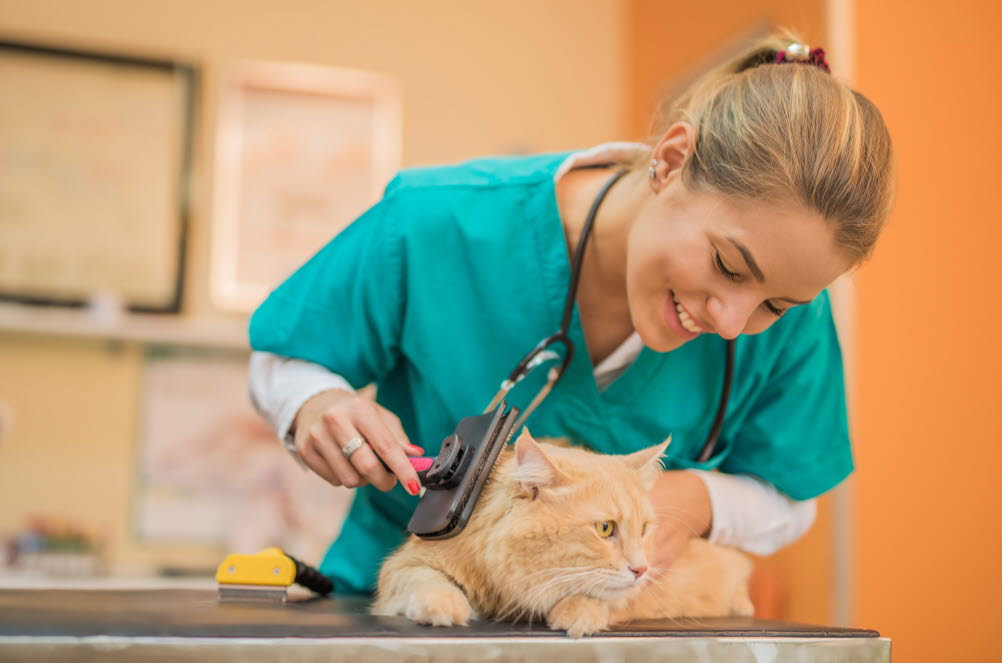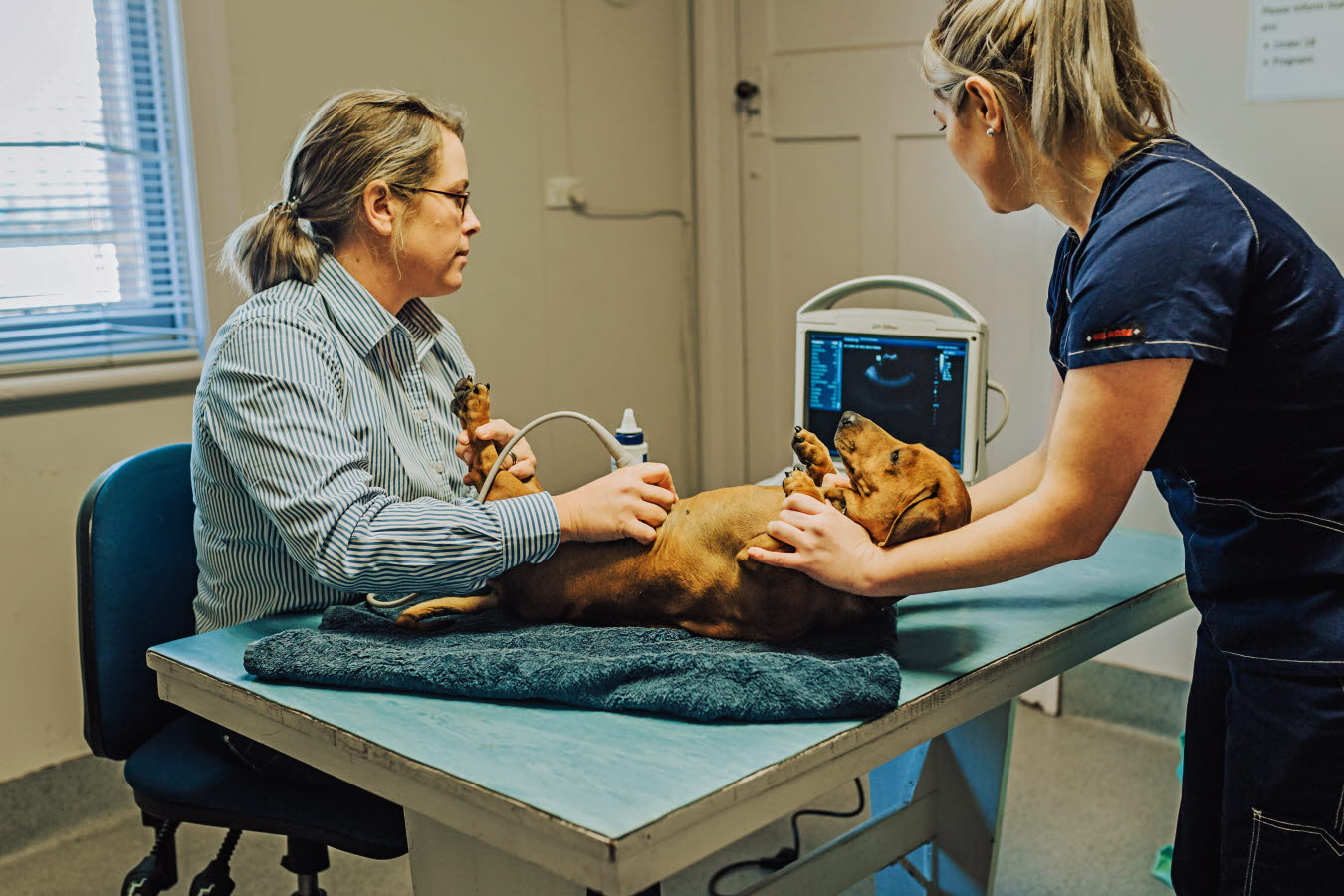Becoming a veterinarian
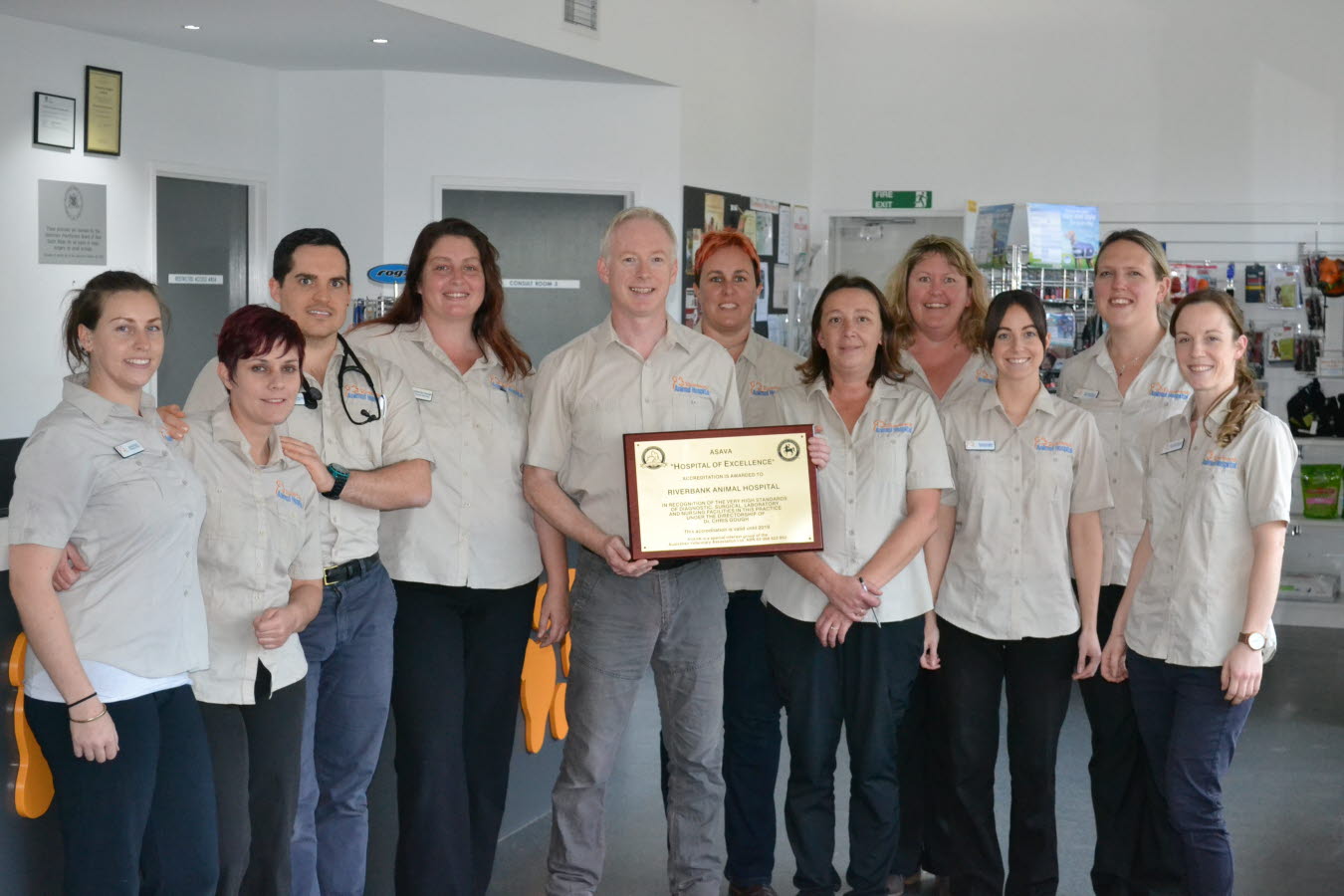
We discuss your options on where to study, career pathways and what veterinarians from overseas need to do to practice in Australia.
Veterinarians look after the health and well-being of all animals. They diagnose, treat and help prevent disease and injury in animals.
Veterinarians have important roles to play in animal, human and community wellbeing.
Veterinarians in rural and regional areas ensure the safety of the food we eat and export, care for the health and welfare of livestock, and are necessary to help identify and respond to a serious disease outbreaks in Australia. They give to farmers advice on herd management and production, animal welfare and biosecurity of their farms.
Two-thirds of households include companion animals, and pets are increasingly valued as important family members. Pet improve people’s health and wellbeing and contributes to our strong communities. And pets need vets, helping with they are sick and unwell, but also advising owners how best to keep them healthy and happy.
Most vets concentrate on at least one field such as small animals, horses or livestock.
There are also veterinarians who look after unusual and exotic pets and animals such as reptiles, rodents and birds.
Some veterinarians undertake postgraduate training to specialise in a particular area of veterinary science such as surgery, radiology, dermatology, behaviour and ophthalmology.
While most of Australia’s vets work in veterinary practices, veterinarians also fill other important roles.
Government – in federal government, vets supervise the handling and health of stock destined for export and quarantine for incoming livestock, genetic material and animal products. Vets working in this area are also involved in public health programs to ensure the safety of food and the regulation of agricultural and veterinary chemicals.
In state governments, vets are responsible for animal welfare as well as monitoring, controlling and eradicating many animal diseases. They are employed in the field and in laboratories.
Teaching and research – some veterinarians teach undergraduate and post-graduate students in universities. Others teach in TAFEs.
Research in universities and other institutions can also provide a challenging career. As well as animal health and welfare research, veterinarians often work in human public health research.
Industry – the pharmaceutical industry is continually developing new medicines for animals and humans, which requires involvement from veterinarians in research, development and providing information to veterinarians. Vets may work in the regulation of medication or vaccines, including monitor and addressing any adverse effects. They may also be involved in pet nutrition and ensuring that pet foods meet the standards that promote the health of the pet at various stages of their lives. Vets are also employed in industry to supervise the breeding, care and maintenance of animals used in research, and in the specialty pet food industry.
Animal welfare – animal welfare has become a prominent and increasingly important social issue. Vets play a key role in many animal welfare bodies and in the supervision and appropriate control of animals use in research.
Wildlife – vets also work in zoos and sanctuaries where they care for and treat some very rare animals. There are also many other emerging animal industries such as aquaculture which offer a niche for veterinary studies graduates.
Internationally - Australian vets contribute on a regular basis to international programs on animal production, disease control and environmental management. A number of vets are employed to consult with aid programs both in Australia and overseas. This might involve working on village agriculture and vaccine production in under-developed countries.
While the majority of veterinarians will fill one of the roles above, a veterinary degree equips a veterinarian with a set of skills that allows for a very broad spectrum of possibilities.
To become a veterinarian in Australia, you need to complete an accredited veterinary science or veterinary medicine degree.
There are seven Australian universities that offer veterinary degrees that will allow you to become a veterinarian:
- University of Queensland (5 Year undergraduate Course)
- James Cook University (5 Year undergraduate Course)
- Charles Sturt University (6 Years joint BVetBiol/BVSc Course)
- University of Adelaide (6 Years joint BSc/DVM Course) or (3 Years DVM after completing a recognised pre-veterinary degree)
- Murdoch University (5 Years joint BSc/DVM Course)
- University of Sydney (6 Years joint BVetBiol/DVM Course) or (4-Years DVM after completing a prior degree with required subjects)
- University of Melbourne (6 Years joint BSc/DVM Course) or (4 Years DVM after completing a recognised pre-veterinary degree)
Some of these universities offer undergraduate veterinary degrees while others require you to have completed a relevant degree such as science, animal science or veterinary bioscience, followed by a Doctor of Veterinary Medicine (DVM).
You should be aware that not all degrees which include the words veterinary lead to becoming a veterinarian.
Some courses also advertised as being "pre-veterinary" programs, however not all of these advertised courses fulfil the entry requirements and prerequisites for the Doctor of Veterinary Medicine degrees.
If in doubt about a pre-veterinary or program offered check with the university offering the Veterinary Science program that you are interested in getting into, to check the compatibility of the program offered.
The Australasian Veterinary Boards Council (AVBC) accredits veterinary schools. The accreditation process ensures that the high standards of the veterinary profession are maintained. This is important in protecting animal health and welfare; and public health in Australia.
You can join the Australian Veterinary Association as a Student Member and receive the benefits of being a student member while studying, so that you are up-to-date with what is happening in the profession.
Veterinarians work in many fields. To find out more, refer to the FAQ 'What do veterinarians do?'
Different universities have different prerequisites, these change regularly so make sure you check the university websites for their entry requirements.
- University of Queensland
- James Cook University
- Charles Sturt University
- University of Adelaide
- Murdoch University
- University of Sydney
- University of Melbourne
Subjects that may be required include English, Chemistry, Mathematics, Physics and/or Biology.
The veterinary nursing profession supports veterinarians in clinical settings, and allows training on-the-job alongside academic studies, and you may wish to inquire with the Veterinary Nurses Council of Australia (VNCA) for further information.
If you have good business acumen you may consider working as a Practice Manager for veterinary practices. Administration and support are crucial to the operation of veterinary practices so to allow the veterinarian to focus on their patients.
Other animal-related career pathways that are available may include :
- Animal welfare inspectors
- Animal attendants
- Pet groomers
- Conservation biologists or ecologists
- Zookeepers
- Wildlife volunteers
Each of the above have a different qualification pathway. Some require university-based qualifications, others can be done via TAFE courses, still others are hands-on training.
In Australia, there are currently over 12,000* registered veterinarians across the country.
*Figure obtained from AVBC correct as at 30/6/2017
For veterinarians qualified overseas wishing to work in Australia, visit the Australasian Veterinary Boards Council (AVBC) site to see what is required.
If already a qualified veterinarian from overseas, you can look up your degree in the Overseas Graduates section of the AVBC website, and see if it is one that is directly transferrable into Australian practice.
If your degree is not directly transferrable, you may need to undertake the National Veterinary Examination with the AVBC in order to bridge your qualifications. Please refer to the Australasian Vet Board Council (AVBC) website for information on the National Veterinary Examination to see whether you are required to sit this examination. The NVE comprises of three parts:
- Eligibility Criteria must be fulfilled with your veterinary qualifications and you must meet the requirements of the Occupational English Test or IELTS
- Complete and pass the Preliminary Examination of multiple choice questions
- Complete and pass the Final Examination which is a clinical component
If you have questions as to whether your qualification is compatible with the Australian Standards, please contact the AVBC directly.
You can also check the AVBC summary of visa requirements, under the subheading Migration. The Australian Government legislation on the General Skilled Migration Program (GSM) can be located on the Department of Home Affairs website.
Once registrable, you will need to them get registered with the State veterinary board in which you will reside. There is no National Registration in Australia as the laws in each state are different, and compliance to legal requirements is by state jurisdiction.
In Australia, the Australian Veterinary Association (AVA) and the registration body for veterinarians are separate entities. Registration is with the State Veterinary Boards, while membership of the AVA is voluntary but beneficial in supporting the profession.
The Australian Veterinary Association (AVA) is the peak professional body for veterinarians across the country. Our role is to provide a platform for veterinarians in the following areas:
- Being a part of the wider profession through membership of the association
- A connecting point to industries that operate around the veterinary profession
- Continuing professional development through learning and local, state and national events
- Support the veterinary profession by the provision of services and resources salient to veterinarians
- Support the students of the veterinary schools and assist with transitioning them to the workforce through student membership activities
- Facilitation of interest groups within the veterinary profession to focus networking and education opportunities for members
- Representation of a diverse member body in the media and in current issues impacting the veterinary profession
- Developing through consultation with our diverse member base policies and positions on various issues affecting the profession
The AVA does not have a regulatory role, which is served by the state veterinary boards.
Membership of the AVA is a voluntary membership and allows members to access benefits, resources and discounts. Veterinarians and those who work very closely with the veterinary profession are eligible for membership.
Our Constitution outlines those eligible for membership and the associated rights and responsibilities of members.
Veterinary jobs all in one place
Looking for a position in veterinary science?
Trending Now
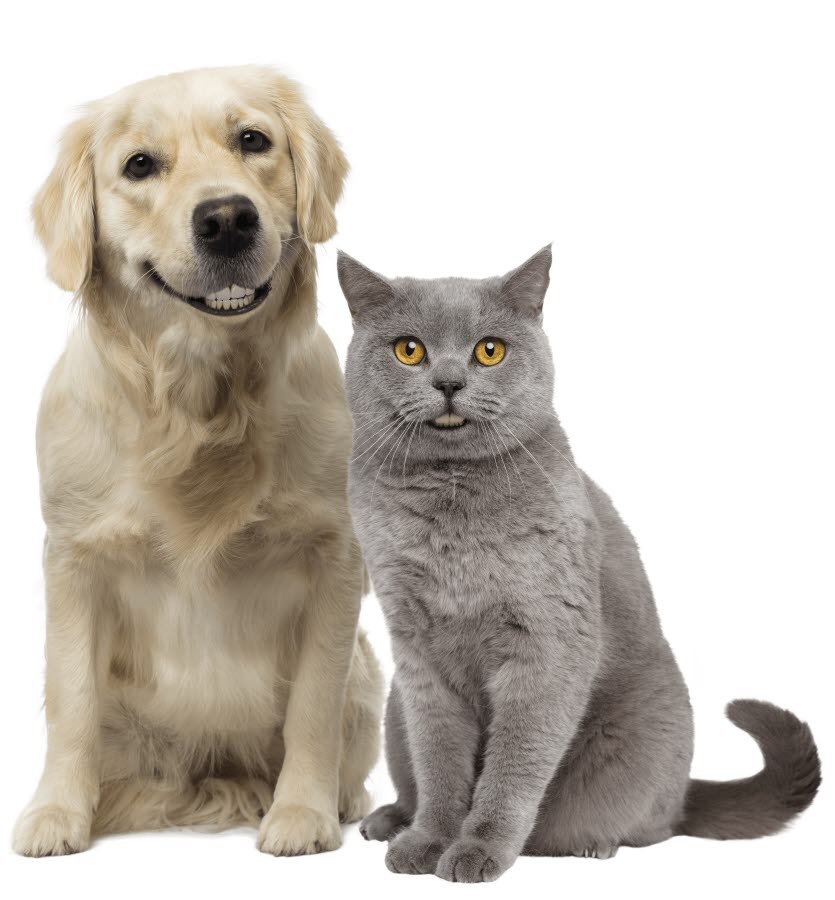
Important steps to dental and oral health in dogs and cats
3 years ago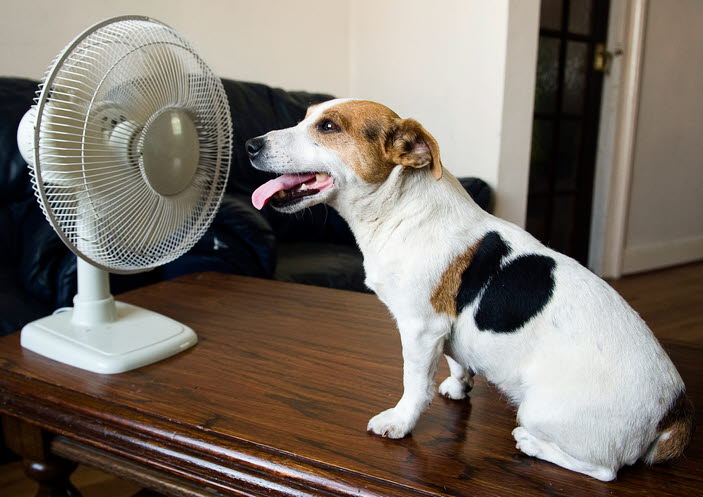
Be prepared for common summer hazards for pets
3 years ago
Why is digestive health so important for dogs and cats?
3 years ago

